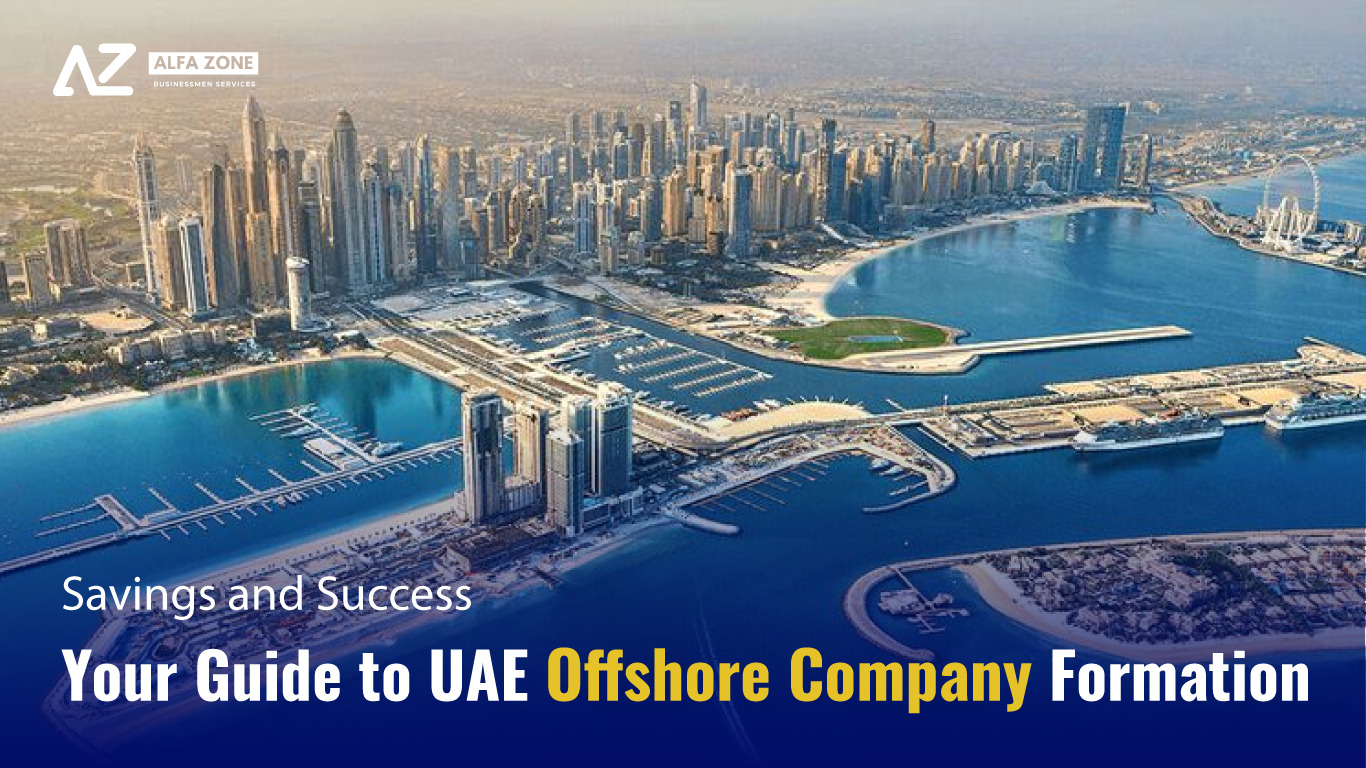Discover the Significance of Offshore Company Formations for Global Company Expansion
Offshore company formations have ended up being a vital method for companies intending for global growth. These entities use significant advantages, consisting of tax obligation optimization and increased privacy. However, the complexities bordering lawful and regulative structures can be tough. Companies should browse these complexities to maximize their possibility. Understanding the core elements of offshore operations is essential for those aiming to improve their international visibility and shield their possessions. What certain benefits can business acquire from this approach?

Recognizing Offshore Business Formations
Several entrepreneurs seek opportunities for international organization development, recognizing offshore firm developments is crucial for traversing this facility landscape. Offshore business development refers to the process of registering an organization in an international territory, often for factors such as tax obligation performance, regulative advantages, and asset protection. Business owners have to consider numerous factors, including the lawful demands of the picked territory, the implications of local legislations, and the benefits of various organization structures. Additionally, knowledge of global treaties and conformity with worldwide financial guidelines are considerable. Steering this terrain needs careful planning and tactical insights, as the wrong choices can bring about legal complications or economic mistakes. By comprehending the subtleties of offshore business developments, entrepreneurs can position their companies efficiently for worldwide operations, ensuring they are well-prepared to maximize the chances offered by a global marketplace.
Key Advantages of Establishing an Offshore Entity
Developing an overseas entity offers various advantages that can substantially improve a company's operational efficiency and economic efficiency. One considerable advantage is raised adaptability in taking care of worldwide procedures. Offshore entities commonly enable structured procedures that facilitate quicker decision-making and responsiveness to market changes (offshore company formations).Additionally, businesses can obtain access to worldwide markets more conveniently, leveraging regional experience and sources that may not be readily available in their home country. This can result in enhanced competitiveness and innovation.Furthermore, establishing an overseas business can give improved personal privacy and discretion for stakeholders and proprietors. This protection can assist guard sensitive info from possible competitors.Lastly, services may experience minimized regulative burdens and conformity expenses, enabling them to assign sources much more successfully. Overall, these crucial advantages make offshore entities a calculated option for services going for international expansion and enhanced operational efficiency

Tax Obligation Optimization Methods Via Offshore Frameworks
Offshore frameworks not only boost operational adaptability and access to worldwide markets but likewise present substantial possibilities for tax obligation optimization. Companies can utilize favorable tax territories to lower their general tax worry, enabling reinvestment and development. By establishing an overseas firm in a tax-efficient area, companies can benefit from decreased corporate tax obligation rates, tax exceptions on particular sorts of income, and improved property protection.These structures can promote tax obligation planning techniques such as profit changing, where profits are alloted to low-tax jurisdictions, and using holding companies to handle rewards and nobilities successfully. Additionally, using overseas accounts can simplify cross-border transactions, minimizing withholding taxes and enhancing cash circulation.
Enhancing Privacy and Discretion in Business Workflow
Just how can businesses effectively protect their sensitive info while maneuvering with the complexities of international operations? Offshore business developments provide a calculated avenue for boosting privacy and discretion in company tasks. By developing entities in jurisdictions with solid personal privacy regulations, business can limit the direct exposure of their functional and financial information. This not only protects proprietary details however additionally mitigates threats connected with information violations and unauthorized disclosures.Utilizing offshore frameworks permits companies to maintain anonymity in possession and deals, which is crucial in competitive markets. Furthermore, these developments frequently supply advanced data defense laws, guaranteeing that sensitive info is protected from prying eyes.Employing robust protection steps, such as security and protected interaction networks, even more boosts the discretion of business operations. By integrating these approaches, companies can with confidence navigate the global landscape while protecting their crucial info and maintaining an one-upmanship.
Browsing Regulatory and legal Considerations for Offshore Business
Maneuvering the intricacies of worldwide business calls for a keen understanding of the governing and legal structures that control offshore firms. These structures differ significantly across jurisdictions, demanding mindful evaluation to ensure conformity. Local business owner should Website recognize neighborhood legislations concerning taxation, reporting obligations, and corporate administration to stay clear of legal pitfalls.Additionally, regulations surrounding anti-money laundering (AML) and know-your-customer (KYC) methods play an essential duty in preserving the authenticity of overseas entities. Failure to comply with these regulations can lead to extreme fines, consisting of criminal charges.Engaging with lawful professionals who concentrate go to this web-site on overseas firm development is often advisable, as they can navigate the elaborate landscape of international law. By remaining informed about the developing regulative setting, companies can tactically take advantage of overseas structures to enhance procedures while reducing risks. Inevitably, a comprehensive understanding of lawful factors to consider is important for successful global development.
Regularly Asked Questions
The length of time Does It Require To Set up an Offshore Company?
The duration to establish an overseas firm differs by territory, commonly varying from a couple of days to numerous weeks. Factors influencing this duration consist of details regulative demands, paperwork preparation, and the efficiency of regional authorities.
What Are the Costs Associated With Offshore Firm Formation?


Can Individuals From Any Kind Of Nation Type an Offshore Business?
Individuals from various nations can without a doubt develop offshore companies. Nonetheless, specific laws, needs, and constraints might vary by territory, necessitating detailed study to guarantee compliance with local laws and global requirements prior to proceeding.
Exist Any Kind Of Ongoing Conformity Requirements for Offshore Firms?
Ongoing compliance demands for offshore companies differ by territory. Normally, these consist of annual filings, tax statements, and keeping exact records. Failing to conform over here can cause charges, making adherence crucial for company sustainability and lawful standing.
Exactly How Can I Locate a Credible Offshore Solution Company?
To locate a trusted overseas company, one need to look into on-line evaluations, verify credentials, and look for recommendations from relied on organization partners. Additionally, comparing services and prices can assist assure a reliable option for overseas firm development. Offshore business developments have become a crucial method for services aiming for international development. Numerous business owners look for chances for global service expansion, understanding offshore business developments is important for traversing this complicated landscape. Offshore firm development refers to the procedure of signing up a service in an international territory, often for reasons such as tax obligation efficiency, governing advantages, and possession protection. By developing an overseas company in a tax-efficient area, companies can benefit from minimized corporate tax obligation prices, tax obligation exceptions on certain kinds of earnings, and enhanced asset protection.These structures can help with tax obligation planning strategies such as revenue moving, where revenues are designated to low-tax jurisdictions, and the usage of holding companies to manage royalties and dividends properly. Steering the intricacies of international company needs an eager understanding of the legal and governing structures that govern offshore companies.